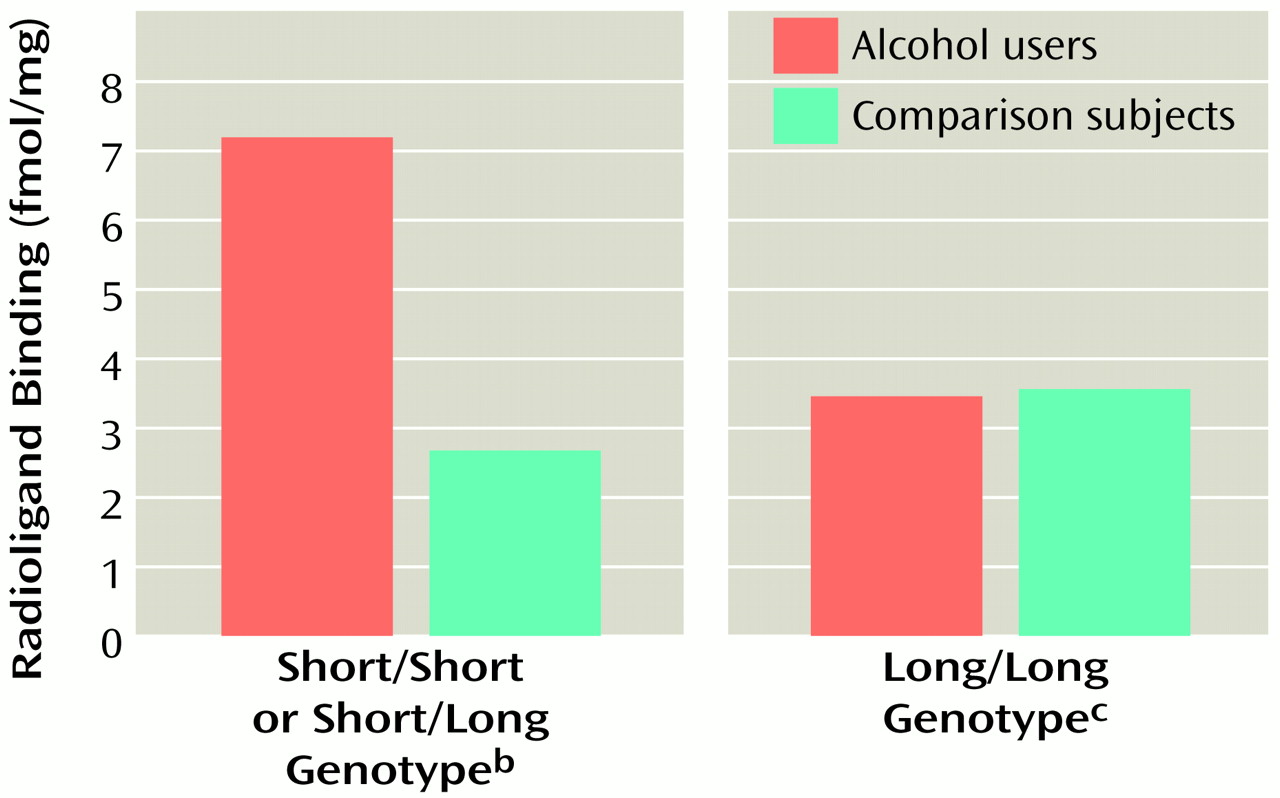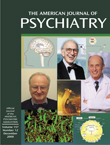Studies in rodents and humans have pointed to a relationship between low levels of brain serotonin turnover and high levels of alcohol intake that may play a crucial role in the initiation and maintenance of alcoholism. Decreased availability of the serotonin transporter to radioligands has been found in brain imaging studies of probands with alcohol dependence
(1) and in postmortem studies of human brains after alcohol exposure
(2). Thus, a polymorphism in the promoter region of the serotonin transporter gene
(3) can be considered a good candidate for conferring genetic susceptibility to alcohol dependence. It has been shown that the two common variants of this polymorphic site differ in the effect they have on the transcriptional activity of the gene in vitro
(3), although it is unclear which of several activators or silencers of transcription
(4) is to be held accountable. Such functional polymorphisms are particularly valuable in tests for association with complex traits such as alcohol dependence. The traditional approach is to compare allele frequencies between afflicted individuals and unrelated matched healthy comparison subjects. In studies using this design, a higher frequency of the short allele has been found in probands with alcohol dependence
(5). Other studies have demonstrated an association between the short allele and increased neuroticism
(3), a personality trait that in turn figures as a risk factor for alcoholism
(6). Since case-control studies are prone to false-positive results caused by population structure
(7), we used a family-based study design to investigate the association between risk for alcohol dependence and the 5-HTTLPR polymorphism in the promoter region of the serotonin transporter gene.
Method
Ninety-two inpatients (mean age=35.3 years, SD=6.3, 82.6% of whom were male) from the alcohol detoxification programs of two psychiatric university hospitals in Germany and Hungary and their parents donated blood samples and were interviewed with the Semi-Structured Assessment for the Genetics of Alcoholism
(8) after receiving a complete description of the aims and the procedures of the study and after having given written informed consent. Inpatient probands fulfilled DSM-IV criteria for alcohol dependence at a mean age of 26.6 years (SD=7.1). Antisocial personality traits were present in 10 probands (10.9%) and a history of delirium in 18 probands (19.6%) and of withdrawal seizures in 24 probands (26.1%).
Genotyping of DNA samples was performed by polymerase chain reaction, as described elsewhere
(9). Fragments of 484 or 528 base pairs corresponding to the short and long alleles, respectively, were separated by agarose gel electrophoresis and visualized by ethidium bromide staining.
Under the null hypothesis of no association, the short and the long alleles from heterozygous parents (genotype short/long) would be transmitted to affected probands at equal frequency. Association as indicated by departure from random transmission can thus be identified with the Transmission/Disequilibrium Test
(7), a goodness-of-fit chi-square test with one degree of freedom.
Discussion
The study results provide support for allelic association of the 5-HTTLPR short variant with alcohol dependence. To our knowledge, this is the first report suggesting association by using a family-based design, which avoids confounding factors of population structure as they may be present in case-control studies. Association of the short allele with risk for alcohol dependence has been reported from case-control studies
(5,
10,
11), some restricted to probands who had withdrawal seizures or delirium
(5) or dissocial personality
(10), although two other case-control studies
(12,
13) and a family-based study
(14) failed to confirm this association.
An association of the 5-HTTLPR variant with alcohol dependence could have significant functional consequences. The short allele has been shown to result in less transporter gene transcription than the long one
(3,
15) and, consequently, in a lower density of transporter ligand binding sites in postmortem brains
(15). The association we found is therefore consistent with the observation that central serotonin transporter availability to ligands is lower in alcohol-dependent probands after detoxification
(1) and in postmortem brains of subjects who had been exposed to alcohol
(2) than in comparison subjects. However, the link between lower basal transcriptional activity associated with the short allele and a higher risk for alcohol dependence remains to be shown. One mechanism might be that chronic alcohol use in individuals with a short allele, but not in those with two long alleles, seems to lead to an up-regulation of basically lower transporter density
(15) (
Figure 1).
Despite the superior properties of the Transmission/Disequilibrium Test, a false positive result remains a possibility. Therefore, replication studies, preferably family-based, in different populations are required. Although favorable treatment response may not necessarily be associated with the same allele as disease susceptibility, our finding, if confirmed, should encourage further studies to explore whether the currently limited benefits of alcoholism treatment with serotonergic drugs could be increased by specifically providing these medications to individuals with genetic vulnerability as indicated by the presence of the 5-HTTLPR short variant.


